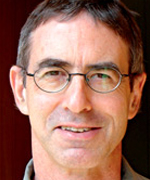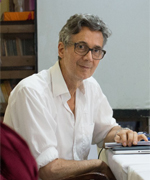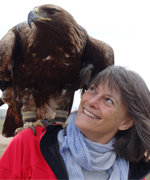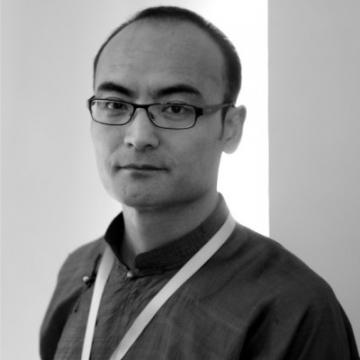Reflections on the Translation Process
Jules Levinson (Independent), John Canti (Padmakara, 84000), Dominique Townsend (Bard), Lama Jabb (Oxford), Sarah Harding (Tsadra Foundation), and Nancy Lin (84000) share their reflections about the process of oral and written translation from some of the first instances of Tibetan language being rendered into English in the United States through the first Lotsawa Translation Workshop in 2018. The discussion weaves through topics like facing the fear of “imposter syndrome” as part of the process of translation, the importance of “kindness to the reader”, and how translators relate to the concept of form. The speakers create a gentle, encouraging, and humorous tone, which appropriately reflects the mood of the entire first Lotsawa Translation Workshop on its final morning.
Event: Lotsawa Translation Workshop – Plenary Session
Date: October 8, 2018 – 9:00 am
Speakers: Dominique Townsend, John Canti, Jules Levinson, Lama Jabb, Sarah Harding
Topics: Tibetan Language, Translation, Transmission

Jules Levinson
UMA Institute for Tibetan Studies
Jules B. Levinson graduated from Princeton University in 1975 and soon thereafter began studying at the University of Virginia under the guidance of Dr. Jeffrey Hopkins and the eminent Tibetan scholars invited by the University’s Center for South Asian Studies. He received a doctoral degree in Religious Studies from the University of Virginia in 1994. At present he lives and works in Boulder, Colorado.

Dominique Townsend
Bard College
Dominique Townsend is Assistant Professor of Buddhist Studies at Bard College. She received her BA from Barnard College, MTS from Harvard Divinity School and PhD from Columbia University in the Department of East Asian Languages and Cultures. Her research is stimulated by productive tensions in Buddhist cultures, such as the relationship between the cultivation of the arts and renunciation. Dominique’s primary interests include Buddhist poetics, pedagogy, and institutionalized charisma. Her current project, based on her dissertation research, focuses on aesthetics and cosmopolitanism in Tibetan Buddhism, with a particular focus on the history of Mindrölling Monastery.

John Canti
Padmakara Translation Group, 84000
In 1970, while studying medicine at Cambridge, John Canti first met his Buddhist teachers, and started to practice under their guidance. After hospital work in London and Cambridge, he moved in the late seventies to eastern Nepal to establish tuberculosis programs in two remote hill districts. Beginning in 1980, he underwent two three-year retreats in the Dordogne, France. Emerging from retreat at the end of the 80s, he helped found the Padmakara Translation Group, of which he is now president, and remains an active translator. From 2001 to 2014 he was a Fellow of the Tsadra Foundation. He is editorial director of 84000 and serves on the working committee as chair of the editorial section. He is based mainly in France but has spent long periods in Nepal and India. As well as his 84000 work, John is working on Mipham’s commentary on the Ratnagotravibhāgottaratantraśāstra.

Sarah Harding
Tsadra Foundation Fellow; Naropa University
Sarah Harding has been a Buddhist practitioner since 1974 and has been teaching and translating since completing a three-year retreat in 1980 under the guidance of Kyabje Kalu Rinpoche. Her publications include Creation and Completion, The Life and Revelations of Pema Lingpa, Treasury of Knowledge: Esoteric Instructions, Machig’s Complete Explanation, and Niguma, Lady of Illusion. She is professor emerita at Naropa University in Boulder, Colorado, where she taught since 1992, and has been a fellow of the Tsadra Foundation since 2000. Currently she is working on translating the zhi byed and gcod sections of Jamgön Kongtrül's the gdams ngag rin po che’i mdzod.

Lama Jabb
Oxford
Lama Jabb was born and brought up in the Dhatsen tribe, a nomadic community from Northeastern Tibet. He completed his primary education in Tibet. Midway through the secondary education he left Tibet to attend a Tibetan refugee school in India. Since 1995 he has lived in United Kingdom. Lama Jabb received BA Honours degree in Political Science and MSc in International Relations from the School of Oriental and African Studies, University of London. He completed his D.Phil in modern Tibetan literature at the University of Oxford in 2013. He is currently a Junior Research Fellow in Tibetan and Himalayan Studies at Wolfson College. He has recently been awarded a prestigious Leverhulme Early Career Fellowship in Tibetan Literature at the Faculty of Oriental Studies, University of Oxford. Lama Jabb’s research interests are in, among other things, modern Tibetan literature, traditional allegorical tales, the interplay between the Tibetan literary text and oral traditions, and the theory and practice of translation. Adopting a keen historical consciousness and an interdisciplinary approach he explores Tibetan creative writing alongside national identity and other socio-political issues embedded within it. He also teaches Tibetan language and literature to graduate students at the Faculty of Oriental Studies. He participates in scholarly discussions on contemporary Tibetan issues in both academic and public forums. His publications include his book Oral and Literary Continuities in Modern Tibetan Literature: The Inescapable Nation (2015).
